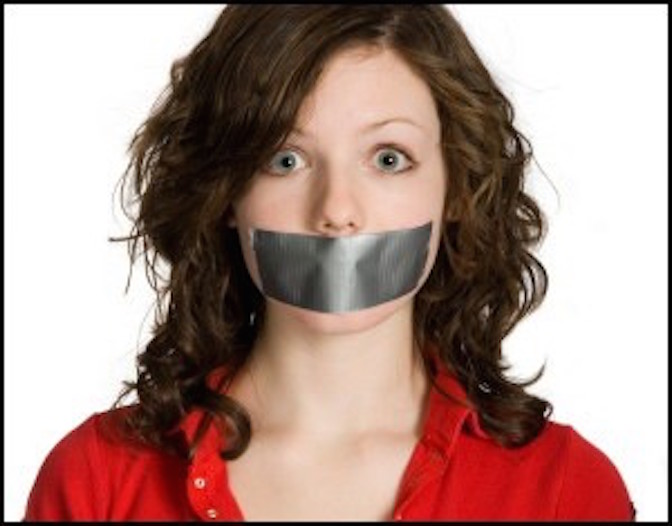Late in 2012, Harrisburg, Pennsylvania’s City Council adopted a law at the urging of Planned Parenthood. Less than one year after starting to sell “drug-induced abortions,” Planned Parenthood pushed on the City Council to keep pro-life Pennsylvanians away, and the Council unanimously agreed to do so – even though Planned Parenthood admitted that there had been no physical altercations and “no arrests have been made.”
Since that vote over three years ago, pro-lifers have been required to stay more than 20 feet away from any abortion clinic entrance or driveway, preventing them even from standing on public sidewalks to reach women who are considering abortion with other options.
Now, three pro-life Pennsylvania women are suing to stop the Harrisburg anti-speech buffer zone law.
The Harrisburg law specifically orders pro-lifers to not “knowingly congregate, patrol, picket or demonstrate in a zone extending 20 feet from any portion of any entrance to, exit from, or driveway of a health care facility.”
Penn Live reports:
[Colleen] Reilly, [Becky] Biter and [Rosalie] Gross claim that [the law] violates their free speech rights and crimps their ability to conduct “peaceful, pro-life sidewalk counseling” and distribute “life-affirming literature” to patrons of the city’s abortion clinics. The measure is also discriminatory since workers at the clinic can voice their views inside the 20-foot zone, the three contend.
The three women, who are represented by Liberty Counsel attorneys, believe that the law should be unenforceable, due to the standard set out by the U.S. Supreme Court in McCullen v Coakley. In that 2014 case, the Court stopped the state of Massachusetts from enforcing a similar law (though the MA law required a 35-foot distance). In McCullen, the Court described the work of sidewalk counselors that is prevented by anti-speech buffer zones:
They attempt to engage women approaching the clinics in what they call “sidewalk counseling,” which involves offering information about alternatives to abortion and help pursuing those options. Petitioner Eleanor McCullen, for instance, will typically initiate a conversation this way: “Good morning, may I give you my literature? Is there anything I can do for you? I’m available if you have any questions.” If the woman seems receptive, McCullen will provide additional information.
McCullen and the other petitioners consider it essential to maintain a caring demeanor, a calm tone of voice, and direct eye contact during these exchanges. Such interactions, petitioners believe, are a much more effective means of dissuading women from having abortions than confrontational methods such as shouting or brandishing signs, which in petitioners’ view tend only to antagonize their intended audience. In unrefuted testimony, petitioners say they have collectively persuaded hundreds of women to forgo abortions.
Similarly, the three women in the Harrisburg case “regularly engaged in peaceful pro-life sidewalk counseling through quiet one-on-one conversations with women and/or their partners, prayer, and distributing life-affirming literature outside of the two abortion clinics in the City of Harrisburg.” The women’s filed brief continues:
Through personal conversations and literature, Plaintiffs suggest alternatives to abortion. Plaintiffs continue to engage in their peaceful pro-life sidewalk counseling, prayer, and leafletting outside the abortion clinics in the City of Harrisburg. However, the buffer zones created by the Ordinance essentially preclude Plaintiffs from engaging in the intimate, conversational speech and leafletting with their intended audience. The Ordinance keeps their expressive activities a significant distance from the abortion clinics which substantially limits their speech and prevents their pro-life message and unamplified conversation from being effective.
In McCullen, the Supreme Court basically decided that the free speech rights of pro-life Americans were unfairly targeted and far too broadly restricted by Massachusetts’ anti-speech buffer zone law. The Court additionally suggested that there is a large difference between getting close enough to a woman to offer her literature and speak to her and blocking her entrance to a clinic – something that neither McCullen nor the three women in Harrisburg do. The public sidewalks are open to a variety of views, not just the views of a close-by business.
Mat Staver, the Founder and Chairman of Liberty Counsel talked to LifeSiteNews and expressed the importance of challenging anti-speech buffer zone laws like the one in Harrisbug:
These sidewalk counselors pray and provide hope to the women and families. Many of these women seeking an abortion change their minds when they meet a caring person who provides information about their preborn child and available alternatives to abortion. The presence of pro-life sidewalk counselors is a matter of life and death for the children and their mothers.







